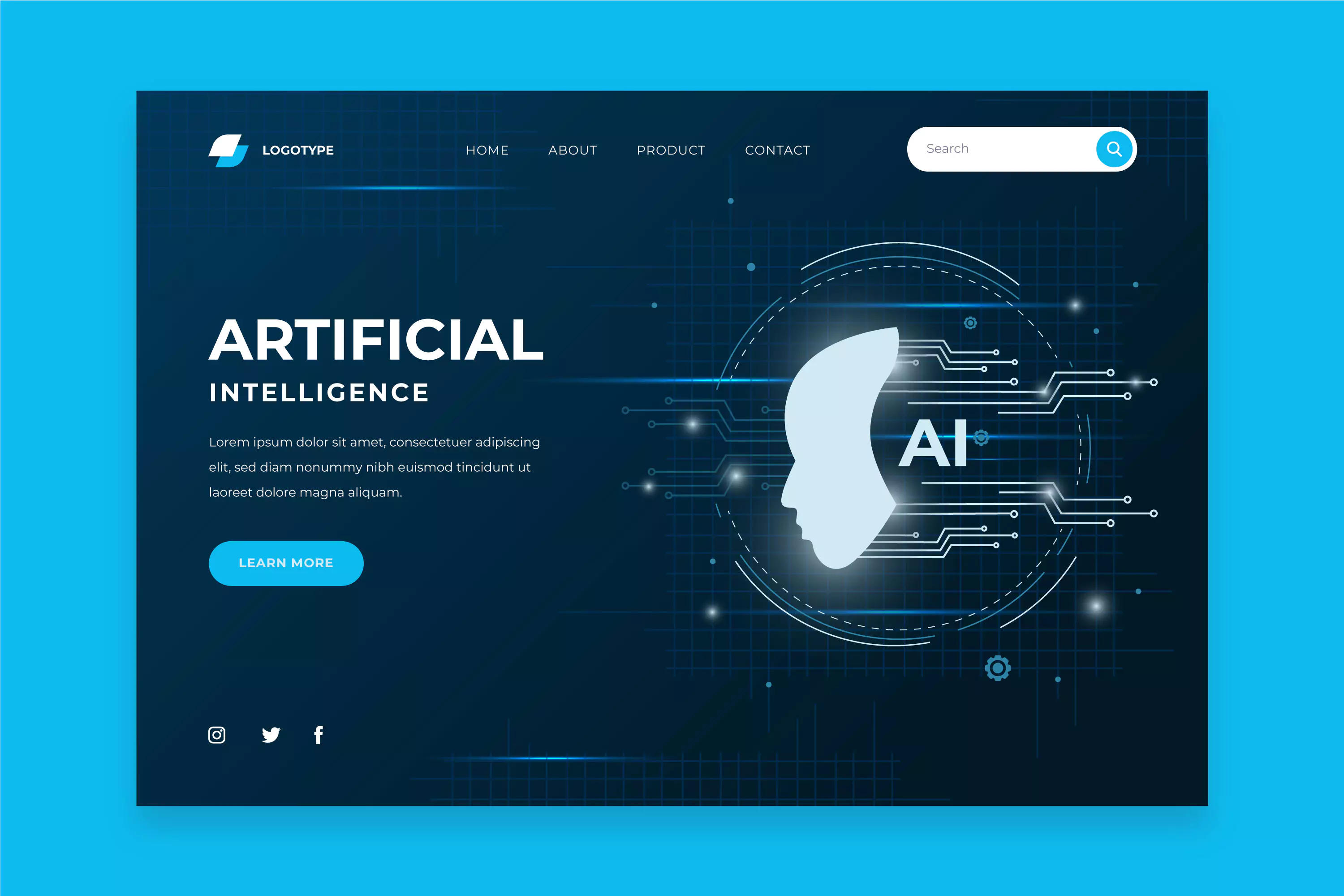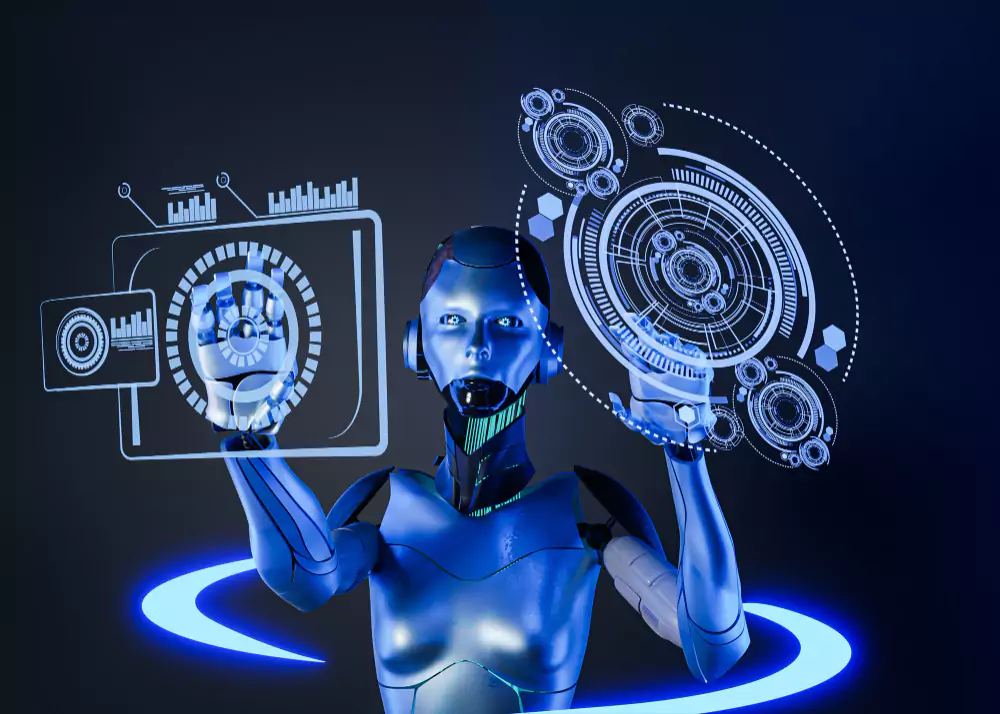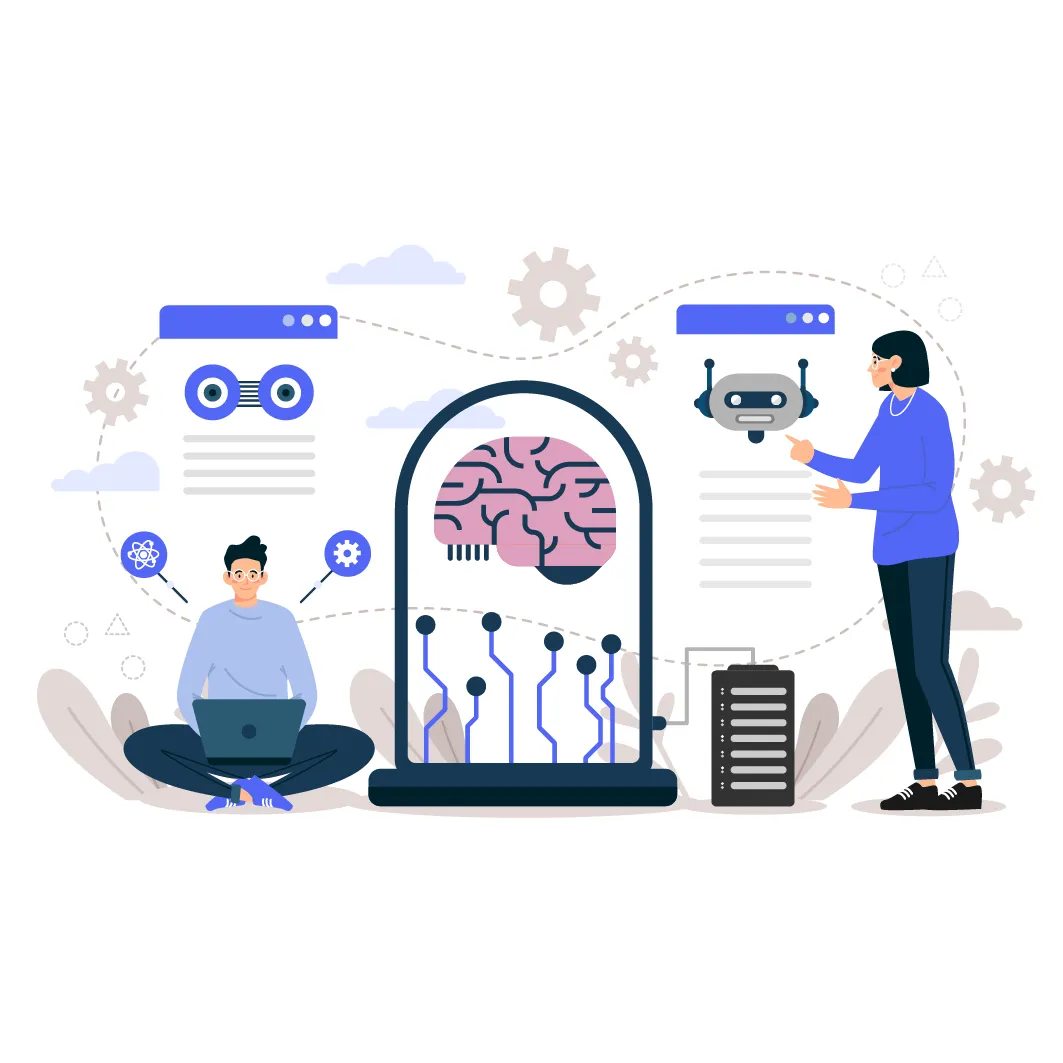What is Artificial Intelligence (AI)?

Artificial Intelligence (AI) refers to the development of computer systems that can perform tasks that would typically require human intelligence, such as visual perception, speech recognition, decision-making, and language translation. AI systems are designed to learn and improve from experience and can operate with a high degree of autonomy.
Why do we need Artificial Intelligence?
AI is increasingly important in today's world because it has the potential to transform many industries and revolutionize the way we live and work. With the growth of big data, machine learning, and cloud computing, AI is becoming more accessible and easier to implement. AI can help businesses automate routine tasks, make more informed decisions, and provide better customer experiences.
How is Artificial Intelligence changing the game?
AI is already changing various industries, including healthcare, finance, retail, and transportation.
In healthcare, AI is being used to improve diagnostics, develop personalized treatment plans, and predict health outcomes.
In finance, AI is being used to automate trading, detect fraud, and assess credit risk. In retail, AI is being used to personalize recommendations, optimize pricing, and streamline supply chain operations.
In transportation, AI is being used to develop autonomous vehicles, improve traffic flow, and reduce accidents.
Types of Artificial Intelligence
Narrow AI (also known as Weak AI)
Narrow AI is the most common type of AI in use today. It is designed to perform a specific task or a set of tasks, and it operates within a well-defined scope. Narrow AI systems can be found in various applications, such as virtual assistants, chatbots, image recognition, and language translation. Despite their limited scope, Narrow AI systems can perform their tasks with high accuracy and efficiency.
General AI (also known as Strong AI)
General AI is a hypothetical form of AI that is capable of performing any intellectual task that a human can. It would have the ability to reason, learn, and understand any intellectual challenge, even if it has never encountered it before. General AI would be able to handle a variety of tasks, from problem-solving to creativity, and could potentially be applied to a wide range of fields. While there has been progress in developing General AI, we are still far from achieving it.
Super AI (also known as Artificial Superintelligence)
Super AI is a theoretical concept that refers to an AI system that surpasses human intelligence in every way. This type of AI would be capable of solving problems that are beyond human comprehension and could potentially even redesign itself for further advancement. The development of Super AI could have both positive and negative consequences for humanity, depending on how it is used.
How does AI work?

Artificial Intelligence (AI) is a rapidly growing field that has the potential to revolutionize the way we live and work. AI systems operate through a combination of computer algorithms, data, and computational power.
The core techniques and methodologies that enable artificial intelligence include machine learning, deep learning, and neural networks. These technologies allow AI systems to learn and adapt to new information, identify patterns, and make predictions based on data input.
Machine Learning
Machine learning is an AI technique that involves training algorithms to recognize patterns and learn from data.
It enables AI systems to make decisions and predictions without explicit programming by feeding them training data and adjusting the algorithm's parameters iteratively. Machine learning has a wide range of applications, from speech recognition to image classification, and is used in industries such as healthcare, finance, and transportation.
Deep Learning
Deep learning is a subset of machine learning that utilizes artificial neural networks, which are inspired by the human brain's structure and function.
These networks consist of multiple interconnected layers of artificial neurons, enabling the system to process and learn from vast amounts of data in a hierarchical manner. Deep learning has been used in a variety of applications, including natural language processing, image recognition, and autonomous vehicles.
Neural Networks
Artificial neural networks are computing systems that mimic the human brain's structure and function. They consist of interconnected neurons organized into layers, allowing AI systems to process information and learn from data input.
Neural networks are the foundation for many AI technologies, including image and speech recognition, natural language processing, and reinforcement learning. They have been used in a variety of applications, from predicting stock prices to diagnosing diseases.
AI systems can acquire human-like intelligence, adapt to new information or environments, and apply their knowledge to solve problems, make decisions or predictions, and interact with their surroundings.
For example, AI is being used in healthcare to diagnose diseases and develop personalized treatment plans, in finance to detect fraud and manage risk, and in transportation to improve traffic flow and reduce accidents.
Applications of Artificial Intelligence
Healthcare

AI is revolutionizing healthcare in many ways, including:
- Disease diagnosis: AI algorithms can analyze medical images and help doctors identify diseases such as cancer more accurately and quickly than humans can.
- Drug discovery: AI can help researchers identify new drug candidates and predict their efficacy, potentially speeding up the drug development process.
- Personalized medicine: AI can analyze patient data to identify patterns and make predictions about which treatments are likely to be most effective for individual patients.
Finance

AI is transforming the finance industry in many ways, including:
- Fraud detection: AI algorithms can analyze vast amounts of financial data to identify patterns that may indicate fraud.
- Investment management: AI can analyze market data and make predictions about which investments are likely to perform well.
- Customer service: AI-powered chatbots can help customers resolve their queries quickly and efficiently without the need for human intervention.
Transportation
AI is changing the way we travel in many ways, including:
- Autonomous vehicles: AI algorithms can help self-driving cars navigate roads and avoid accidents.
- Traffic management: AI can analyze traffic patterns and help optimize traffic flow, reducing congestion and travel times.
- Predictive maintenance: AI can analyze data from sensors on vehicles and predict when maintenance is needed, reducing downtime and increasing efficiency.
Education
AI is transforming education in many ways, including:
- Personalized learning: AI algorithms can analyze student data to identify patterns and make predictions about which teaching methods are likely to be most effective for individual students.
- Intelligent tutoring systems: AI-powered tutoring systems can provide students with personalized feedback and support.
- Grading: AI can analyze student essays and other written assignments and provide automated grading, reducing the workload for teachers.
Entertainment
AI is changing the way we consume entertainment in many ways, including:
- Content recommendation: AI algorithms can analyze user data to recommend movies, TV shows, and music that users are likely to enjoy.
- Content creation: AI can generate music, art, and other creative works.
- Gaming: AI can improve the realism and complexity of video games, making for a more engaging and immersive experience.
Challenges and Opportunities of Artificial Intelligence
AI is an incredibly powerful technology that has the potential to change the world in profound ways. However, with that power comes a number of challenges and opportunities that must be carefully considered.
Data Privacy and Security
As AI relies heavily on data, it is important to ensure that personal and sensitive information is protected.
In addition to legal and regulatory frameworks, organizations must implement robust security measures to safeguard data from cyber threats and breaches. Furthermore, ethical considerations must be taken into account when collecting and using data, particularly in areas such as facial recognition and predictive analytics.
Job Displacement
While AI has the potential to increase productivity and efficiency, it also raises concerns about job displacement.
According to a report by the World Economic Forum, the adoption of AI could lead to the displacement of 75 million jobs by 2024. To mitigate the impact of job losses,
governments and organizations must prioritize reskilling and upskilling programs to ensure that workers are equipped with the skills needed for the jobs of the future.
This includes investing in education and training programs, as well as providing financial support and incentives for workers to transition to new roles.
Cost and Complexity
Implementing AI solutions can be costly and complex, particularly for small and medium-sized businesses. To overcome this hurdle, governments and organizations must invest in research and development to make AI technologies more accessible and affordable.
This includes developing open-source AI tools and platforms, as well as supporting startups and small businesses in the development and deployment of AI solutions.
Regulation and Governance
The development and application of AI require appropriate regulation and governance to address ethical concerns and ensure accountability and transparency. This includes establishing clear guidelines for the collection and use of data, as well as ensuring that AI systems are designed and deployed in an ethical and responsible manner.
Additionally, there must be mechanisms in place to ensure that AI systems are transparent and accountable, and that their decision-making processes can be audited and explained.
Technological Limitations
While AI has made significant strides in recent years, there remain technological limitations that must be overcome to advance AI capabilities. For example, AI systems struggle to replicate common sense or human intuition, which can limit their effectiveness in certain applications. To overcome these limitations, further research and development are necessary, including the development of new algorithms and approaches to machine learning.
Future of Artificial Intelligence
Predictions for AI in the near future
Artificial Intelligence is rapidly evolving and advancing, and its impact on society is likely to grow significantly in the near future. Some predictions for the future of AI include:
- Increased automation: As AI becomes more advanced, we can expect to see more tasks and jobs being automated, potentially leading to significant changes in the workforce.
- Enhanced personalization: AI has the potential to provide more personalized experiences in various industries, such as healthcare, education, and entertainment.
- Improved decision-making: AI can assist in making more informed and accurate decisions, which can benefit various sectors such as finance, transportation, and energy.
- More human-like interactions: With advancements in natural language processing and computer vision, AI systems can become more adept at interacting with humans, potentially leading to more immersive and intuitive experiences.
Areas for further research and development
While AI has made significant advancements in recent years, there are still many areas that require further research and development. Some key areas include:
- Explainable AI: As AI becomes more complex, it can become difficult to understand how decisions are being made. Explainable AI aims to make AI systems more transparent and understandable.
- Human-AI collaboration: As AI becomes more integrated into various industries, there is a need to develop effective collaboration between humans and AI systems.
- Ethical considerations: The use of AI raises important ethical considerations, such as how to ensure fairness, transparency, and accountability in AI systems.
FAQs
1. What is Artificial Intelligence (AI), and how does it work?
Artificial Intelligence (AI) refers to developing computer systems that can perform tasks typically requiring human intelligence. It uses algorithms, data, and machine-learning techniques to enable computers to learn, reason, and adapt to various inputs.
2. What are the main branches of AI?
The main branches of AI include machine learning, deep learning, natural language processing, computer vision, robotics, and expert systems. Each branch focuses on different aspects of AI, such as pattern recognition, understanding human language, or autonomous decision-making.
3. How is AI being used across industries?
AI transforms industries by automating processes, improving decision-making, and providing personalized experiences. Examples include:
- Healthcare (diagnosis and treatment).
- Finance (fraud detection and investment).
- Transportation (autonomous vehicles).
- Manufacturing (quality control and predictive maintenance).
4. What are the ethical concerns surrounding AI?
Ethical concerns surrounding AI include:
- Ensuring data privacy and security.
- Addressing biases in AI algorithms.
- Maintaining transparency in AI systems.
- Avoiding unintentional harm.
- Exploring the potential impact on employment and social structures.

